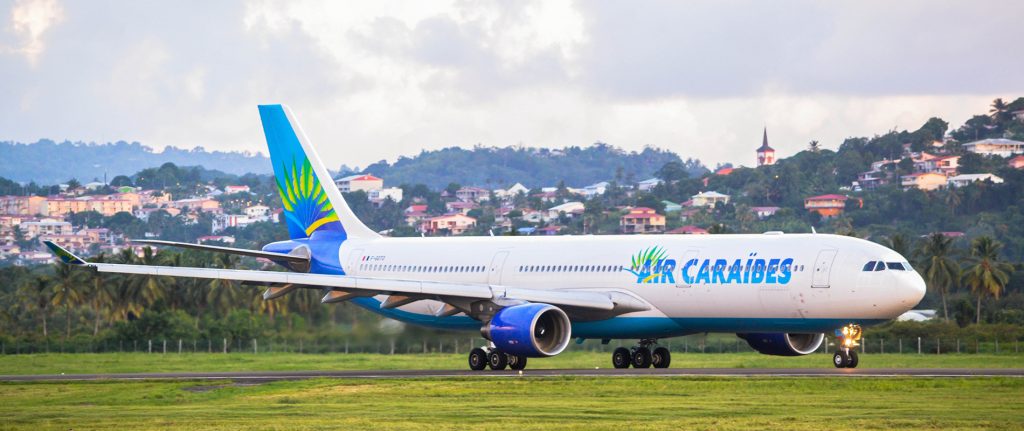Frequently Asked Questions (FAQ)
Need help booking a vehicle? Do you have questions about our offers?
Find answers to the most frequently asked questions.
If you can't find an answer to your question, please contact us.
Our customer service team will be happy to answer your questions on 05 96 02 03 23 or by e-mail allocarmartinique@gmail.com.
When booking a rental car, it's essential to know the different payment options available to choose the one that best suits your needs. Here's an overview of common and specific payment options you may encounter when renting a vehicle in Martinique.
1. Credit Card (CB)
Usage:
- Booking and Payment: The credit card is the most common payment option for car rentals. You can typically use a credit or debit card to pay at the time of booking and, in some cases, for the security deposit.
- Security Deposit: A pre-authorization on your credit card will be requested at the time of booking confirmation through the Swikly service to cover the security deposit. Make sure your card has sufficient available funds for this amount.
2. Vacation Vouchers (Chèques Vacances)
Usage:
- Booking and Payment: Some rental providers accept Vacation Vouchers as a payment method, often for partial or full payments. This option can be convenient for French residents on holiday.
- Limits: Check with the rental agency whether Vacation Vouchers are accepted and what the specific conditions are for their use.
Tips:
- Validation: Ensure your Vacation Voucher is valid and that the agency accepts this payment method before finalizing your booking.
3. PayPal
Usage:
- Online Booking: Some rental websites allow payment via PayPal, providing a secure and convenient payment method, especially for online bookings.
- Availability: The availability of PayPal as a payment option depends on the rental agency. Check at the time of booking if this option is offered.
Tips:
- Check Fees: Make sure there are no additional fees for using PayPal, and confirm that the total amount is covered by your PayPal account.
4. Payment in 3 Installments without Fees
Usage:
- Booking: Some rental agencies offer the option to pay in three installments without any additional fees. This option can help you manage your budget by spreading out the rental cost.
- Conditions: This option may be subject to specific conditions and may require additional verification processes.
Tips:
- Verify Details: Confirm the terms of installment payments at the time of booking and ensure that this does not alter the terms of your rental contract.
5. Deposit
Usage:
- Booking: Many rental agencies require a deposit to confirm your vehicle reservation. The deposit is usually a percentage of the total rental cost.
- Balance Payment: The remaining balance is generally paid when picking up the vehicle.
Tips:
- Keep Proof: Retain proof of payment for the deposit to avoid any disputes when picking up the vehicle.
Payment options for car rental.
The fuel policy of a car rental agency is a crucial aspect to understand before you take possession of your vehicle. Here are the main options you might encounter, along with tips to ensure you comply with the vehicle return conditions.
1. Full-to-Full
Description:
- Rule: You pick up the vehicle with a full tank and must return it with a full tank as well.
- Benefits: This policy is often the fairest, as you only pay for the fuel you actually use.
Tips:
- Planning: Make sure to refuel before returning the vehicle to avoid additional charges for missing fuel.
- Receipts: Keep proof of your refueling to avoid disputes at the time of vehicle return.
2. Full at Departure, Return with Same Level
Tips:
- Check the Level: Note the fuel level at departure and ensure you return the vehicle with a similar amount to avoid additional charges.
- Tank Condition: If you're unsure about the fuel level at departure, ask the agency to provide an accurate reading.
3. Additional Fuel Charges
Description:
- Rule: If you do not adhere to the specified fuel policy (e.g., returning the vehicle with an empty tank), the rental agency may charge you fuel fees.
- Benefits: These fees cover the cost of the fuel and the administrative management of refueling the tank.
Tips:
- Avoid Fees: Follow the agency's fuel policy to avoid additional charges. Check the return conditions to understand what the agency considers acceptable.
Conclusion
Understanding the rental agency's fuel policy is essential to avoid unexpected fees and ensure a hassle-free vehicle return. Whether you choose a full-to-full policy, full at departure with the same level upon return, pre-paid fuel, or fuel included in the rate, make sure to know the requirements before taking possession of the vehicle. By planning and following the fuel policies, you can make your car rental experience smoother and stress-free.
Fuel policies for car rental
Before taking possession of a rental car, it is essential to conduct a thorough inspection to avoid any issues and unexpected charges. Here’s a detailed guide on what to check before signing the contract and driving away with the vehicle.
1. Exterior Inspection of the Vehicle
Body:
- Scratches and Dents: Carefully examine the body for any scratches, dents, or scuffs. Ensure that all damages are noted on the rental agreement or reported to the agency staff before departing.
- Condition of the Windows: Check the windows and windshield for cracks or chips. These damages can affect visibility and should be documented.
Tires:
- Wear and Pressure: Inspect the condition of the tires to ensure they are not worn or damaged. Also, check the tire pressure, as underinflated tires can affect safety and vehicle performance.
- Wheel Trims: Ensure that the wheel trims are not damaged.
2. Interior Inspection of the Vehicle
General Condition:
- Cleanliness and Comfort: Check the interior of the vehicle to ensure it is clean and in good condition. Look over the seats, carpets, and controls for any signs of damage or excessive dirt.
- Accessories: Make sure all accessories and equipment (such as seat belts, child seats, and mirrors) are in good working order.
Features:
- Electronic Equipment: Test the electronic equipment such as the radio, GPS, and air conditioning to ensure they function properly.
- Lighting: Check the headlights, taillights, turn signals, and brake lights to make sure they are all operational.
3. Document and Equipment Check
Rental Documents:
- Rental Agreement: Carefully read the rental agreement and ensure that all details, including pre-existing damages and return conditions, are clearly stated.
- Keys and Documents: Make sure you receive all necessary keys and documents associated with the vehicle, such as the driver’s manual and insurance information.
Safety Equipment:
- Warning Triangle and Safety Vest: Check that the vehicle is equipped with the required safety equipment, such as a warning triangle and safety vest, if applicable.
- First Aid Kit: Ensure that a first aid kit is present in the vehicle.
4. Vehicle Test Drive
Driving:
- Test Drive: If possible, take a short test drive of the vehicle to check its behavior on the road. Listen for any unusual noises, test the brakes, and ensure the steering is precise.
- Performance: Check that the engine runs smoothly and that the transmission responds well. Ensure that the vehicle is responsive and shows no driving issues.
5. Communication with the Rental Agency
Report Issues:
- Noted Damages: Immediately inform the agency staff of any damage or issues you have noticed. Ensure they are documented in the rental agreement to avoid additional charges upon return.
- Questions: Ask any necessary questions regarding the rental company's policies, insurance, and return procedures.
Return of the Vehicle:
- Inspection at Return: When returning the vehicle, be present for the final inspection and request a written report of the vehicle's condition to avoid disputes later.
Conclusion
Thoroughly inspecting the vehicle before renting it is a crucial step to ensure a hassle-free rental experience. By carefully examining the exterior and interior of the vehicle, checking the documents and equipment, and communicating clearly with the rental agency, you can ensure everything is in order before hitting the road. Following these tips will help you avoid unpleasant surprises and fully enjoy your car rental experience in Martinique.
Vehicle inspection before rental
International driving permit
When renting a car abroad, including in Martinique, understanding the requirements for driving licenses is crucial. The international driving permit (IDP) is often required to drive internationally. Here’s what you need to know about the IDP for your car rental in Martinique.
1. What is an international driving permit?
Definition:
- Official translation: The IDP is an official translation of your national driving license. It certifies the validity of your license in multiple languages and facilitates communication with local authorities in case of a traffic stop.
Necessary documents:
- Required documents: The IDP must be accompanied by your valid national driving license to be recognized. The IDP alone is not sufficient; it must be used in conjunction with your national driving license.
2. Do I need an international driving permit in Martinique?
Requirements in Martinique:
- National driving license: In Martinique, a driving license issued in a European Union member country or a country with an agreement with France is generally sufficient for renting a vehicle. However, it is recommended to check the specific requirements of the rental agency.
- Recommended international driving permit: For licenses issued outside the European Union, the IDP is often required or highly recommended. This makes interactions with local authorities and rental agencies smoother.
Practical tips:
- Pre-travel verification: Before traveling, check the specific requirements of the car rental agency in Martinique to see if an IDP is necessary.
3. How to obtain an international driving permit?
Obtaining procedure:
- Application through local authorities: The IDP can typically be obtained from the relevant authorities in your home country, such as driving license issuance services or transportation offices.
- Required documents: You will need to provide a copy of your national driving license, a passport-sized photo, and sometimes a completed application form along with payment for administrative fees.
Processing time:
- Advance preparation: Processing for the IDP may take several weeks. Be sure to apply well in advance of your trip to avoid last-minute stress.
4. Using the international driving permit
Validity:
- Duration: The IDP is generally valid for three years or until your national driving license expires, whichever comes first.
- Presenting the IDP: When renting a vehicle or driving, you will need to present both your national driving license and the IDP. Ensure both documents are in order and easily accessible.
Driving in compliance:
- Local rules: Even with an IDP, you must adhere to local driving regulations in Martinique, including speed limits, traffic rules, and road safety requirements.
5. What to do if there’s a problem with the international driving permit?
Encountering issues:
- Check requirements: If you experience issues when renting a car or with local authorities, verify the exact requirements and ensure your IDP is valid and correctly filled out.
- Rental agency assistance: Contact your rental agency for help and clarify any confusion regarding required documents.
Consular help:
- Contacting the consulate: In case of major problems, you can contact your country’s consulate or embassy in Martinique for assistance and advice on the necessary steps.
Conclusion
The international driving permit is an important document for driving in Martinique, especially if your national license is not issued by a country with specific agreements with France. By checking the requirements of your rental agency and obtaining your IDP in advance, you can ensure a hassle-free driving experience. Make sure you have all the necessary documents to fully enjoy your stay in Martinique.
International driving permit
When you rent a car in Martinique, it is crucial to ensure that you comply with regulations regarding child seats. These regulations are in place to guarantee the safety of young passengers. Here’s everything you need to know about child seats when renting a vehicle.
1. legal requirements for child seats in martinique
safety standards:
- appropriate seats: In Martinique, as in most countries, children must be installed in car seats that are suitable for their age, weight, and height. The seats must comply with current safety standards, such as the European standard ECE R44/04 or ECE R129 (i-Size).
- mandatory use: Children under 10 years old must be installed in an appropriate car seat. Young children should use specific seats for infants, toddlers, or older children, depending on their size and weight.
types of seats:
- infant seat (rear-facing): For babies from birth up to around 12 months. These seats are designed to protect babies in the event of a collision.
- child seat (forward-facing): For children aged 1 to 4 years, offering better lateral support.
- booster seat: For older children who have outgrown child seats but are not yet tall enough to use the seat belt alone. It is recommended for children up to 10 years or 1.35 meters in height.
2. booking and availability of child seats
booking in advance:
- book in advance: When you book your rental car, also request a child seat. Rental agencies often have child seats available, but it’s best to reserve them in advance to ensure availability.
- check the options: Make sure the seats offered meet safety standards and are suitable for your child's age and size.
additional costs:
- rental fees: Most rental agencies charge an additional fee for renting child seats. The cost may vary depending on the agency and the type of seat requested.
3. installation and use of child seats
correct installation:
- follow the instructions: Install the child seat according to the manufacturer's instructions. Proper installation is essential for your child's safety.
- assistance if needed: If you have doubts about installing the seat, ask for help from the rental agency staff or consult online guides on car seat installation.
safety check:
- check the seat: Before starting your journey, ensure that the seat is securely attached and stable. Also, check that your child is properly strapped in according to safety standards.
4. tips for traveling safely with children
preparation:
- prepare for your trip: Ensure that your child is comfortable in their seat during the ride. Bring distractions like toys or books to make the journey more enjoyable.
- frequent stops: Take regular breaks during long trips to allow your child to stretch their legs and rest.
safety:
- do not leave dangerous objects: Avoid leaving objects that could become projectiles in case of sudden braking or an accident.
- follow the rules: Always use the child seat correctly and never place a child seat in the front seat, unless the airbag is deactivated.
conclusion
Ensuring your child's safety during a car trip in Martinique is essential. Adhere to legal requirements for child seats, book in advance to guarantee availability, and ensure proper installation. By following these tips, you can travel with peace of mind and fully enjoy your stay while ensuring the safety of your young passengers.
Regulations on child seats
Deposit: A temporary guarantee for the rental company
When you rent a vehicle, the deposit is an amount of money temporarily blocked on your account, used to cover any potential damages or additional fees. Typically, it is charged as a security deposit via a credit card. The amount can vary depending on the rental agency, but it usually ranges from €500 to €2,000, depending on the vehicle model and the level of coverage chosen.
The deposit is fully refunded, provided that the vehicle is returned without damage and with a full tank of fuel, in accordance with the terms of the contract. To minimize issues, it is advisable to carefully check the condition of the vehicle before taking it, to avoid any disputes upon return.
This practice protects rental agencies while providing security to drivers against unforeseen events.
Deductible: An amount you are responsible for in case of incident
The deductible represents the amount you must bear in the event of an incident, even if you have insurance. Unlike the deposit, which is a temporary guarantee, the deductible is a fixed sum you must pay if the vehicle suffers damage or theft. The amount of the deductible generally varies depending on the vehicle category and options chosen, reaching up to €2,500 for high-end cars.
In the event of an accident or damage to the vehicle, the rental company's insurance covers the repairs, but you remain responsible for the deductible, which will be deducted from your deposit. It is important to understand that the deductible applies even if you are not at fault in the incident. To reduce this amount, you can opt for a partial or total deductible buyout. This option can significantly reduce your financial responsibility, sometimes limiting the deductible to less than €200.
How deductible buyout reduces your financial risks
Deductible buyout is an option offered by rental agencies to limit or even eliminate the amount you have to pay in case of an incident. By subscribing to this option, you can significantly reduce the deductible, which can drop to less than €100 or even be completely waived. This solution is particularly advantageous if you rent a vehicle for a long period or if you plan to drive long distances, thereby increasing the risks of an incident.
Although the deductible buyout incurs an additional cost, ranging from €10 to €30 per day depending on the rental company, it can save you from significant expenses in the event of major damage or theft. It is essential to assess your own level of risk and determine whether this investment is worthwhile based on your needs and destination. For total peace of mind, this option often remains the best solution for budget-conscious renters.
The role of insurance and Credit Cards in managing the deductible
Certain premium credit cards, such as Visa Premier or Mastercard Gold, include insurance that covers the deductible in case of damage or theft of your rental vehicle. This insurance may cover part or even all of the deductible, allowing you to limit your expenses in the event of an incident. However, it is important to check the specific terms of your card, as not all offer this service and some may impose exclusions, particularly regarding vehicle categories or the countries in which you rent.
Additionally, rental insurance may also provide solutions to cover the deductible. By subscribing to a "deductible buyout" insurance directly through the agency or via an external insurance provider, you protect yourself against financial surprises. Although this insurance represents an additional cost in the short term, it often proves wise, especially for long-term rentals or in high-risk areas. Subscribing to these options allows you to travel more calmly while benefiting from extensive coverage against unforeseen incidents.
What is the difference between the deposit and the deductible?
What is the deposit in car rental?
When you rent a car, a deposit is often required to cover any potential damage to the vehicle or infractions. This amount, also known as a security deposit, is blocked on your credit card for the duration of the rental. The amount varies depending on the rental companies and the car models, but it generally ranges from €500 to €2,000, or even more for high-end vehicles.
The deposit protects the rental company in case of an accident, theft, or damage. If no incidents occur, it is released and refunded to you. However, in the event of a claim, all or part of this amount may be withheld to cover repair costs or the application of a deductible.
It is important to check the terms of the rental agreement, particularly the deductible, which determines the maximum amount you could lose.
How does the deposit work in the event of an accident with the rental vehicle?
In the event of an accident with a rental car, the deposit plays a crucial role in managing damages. As soon as the accident occurs, the rental company may decide to block all or part of the deposit to cover repair costs. The amount withheld usually depends on the deductible outlined in the rental agreement. This deductible represents the ceiling of expenses you will have to bear. For example, if the deductible is €1,000, and repairs cost €1,500, you will only be responsible for €1,000, while the rental company's insurance will cover the rest.
If you have purchased a deductible waiver, the deposit may be fully or partially refunded, depending on the specific terms of the insurance. However, if you are found responsible for the accident, even with supplemental insurance, the deposit may be withheld during the administrative processing of the incident. Therefore, it is crucial to understand the terms of your contract and ensure you have adequate protection to avoid unpleasant surprises.
What happens if liability is shared or in the case of a non-responsible claim?
When the responsibility for an accident is shared or you are not at fault, the handling of the deposit may vary depending on the circumstances and the clauses of the contract. In the case of shared responsibility, the deposit may be partially withheld, proportionate to the degree of responsibility assigned to you. For example, if you are deemed 50% responsible, part of the deposit will be used to cover repairs up to that proportion.
If you are not responsible for the accident, and the other driver is identified, their insurance should cover all damages. However, while awaiting administrative resolution, it is possible that the deposit is temporarily blocked. Once the other party's insurance has covered the costs, the deposit is fully refunded.
If the accident occurs with an unidentified third party or a hit-and-run, even if you are not at fault, you may have to bear the costs, resulting in your deposit being partially or fully withheld. These situations make it essential to carefully check the terms of your insurance and included protections.
How to recover the deposit after an accident?
Recovering the deposit after an accident depends on how the damage is managed and compliance with the terms of the contract. If you are responsible, part or all of the deposit will be used to cover repairs, up to the amount of the deductible stated in your contract. Once the costs are assessed, the remaining amount, if any, will be released and refunded. It can take between 7 to 30 days for the deposit to be refunded, depending on the payment method used and the rental company.
If you are not responsible, the deposit may be temporarily withheld while the insurance companies agree on liability. In the event of a favorable agreement, the amount will be fully returned to you. However, administrative procedures may prolong this process.
To expedite the recovery of the deposit, it is advisable to promptly provide all necessary documents (accident report, police report, photos of the damages) to the rental company and insurance. A deductible waiver insurance may also facilitate the refund of the deposit, or even prevent its initial blocking. Always check the terms of your contract to avoid surprises in this type of situation.
How is the deposit affected in the event of an accident?
Latest articles
ALLOCAR benefits
Unlimited mileage
All risks insurance
Assistance 7 days a week
Open 7 days a week
SHUTTLE SERVICE
ALLOCAR offers a shuttle service for all arrivals at Fort-de-France airport (Martinique) and Juliana airport (Sint-Maarten), as well as the various ports of Fort-de-France (cruise ships cruise ships, island expresses)
They put their trust in us











